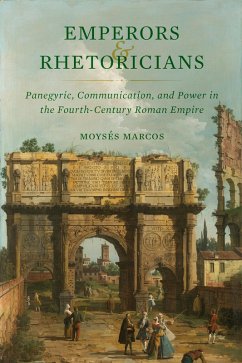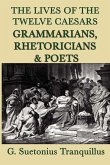Panegyric, the art of publicly praising prominent political figures, occupied an important place in the Roman Empire throughout late antiquity. Orators were skilled political actors who manipulated the conventions of praise giving, taking great license with what they chose to present (or omit). Their ancient speeches are rare windows into the world of panegyrists, emperors, and their audiences. In Emperors and Rhetoricians, Moysés Marcos offers an original, comprehensive look at all panegyrics to and by Julian, who in 355/56 CE promoted himself as a learned caesar by producing his own panegyric on his cousin and Augustan benefactor, Constantius II. During key stages in his public career and throughout the time he held imperial power, Julian experimented with and utilized panegyric as both political communication and political opportunity. Marcos expertly mines this vast body of work to uncover a startlingly new picture of Julian the Apostate, explore anew the arc of his career in imperial office, and model new ways to interpret and understand imperial speeches of praise.
Dieser Download kann aus rechtlichen Gründen nur mit Rechnungsadresse in A, D ausgeliefert werden.









